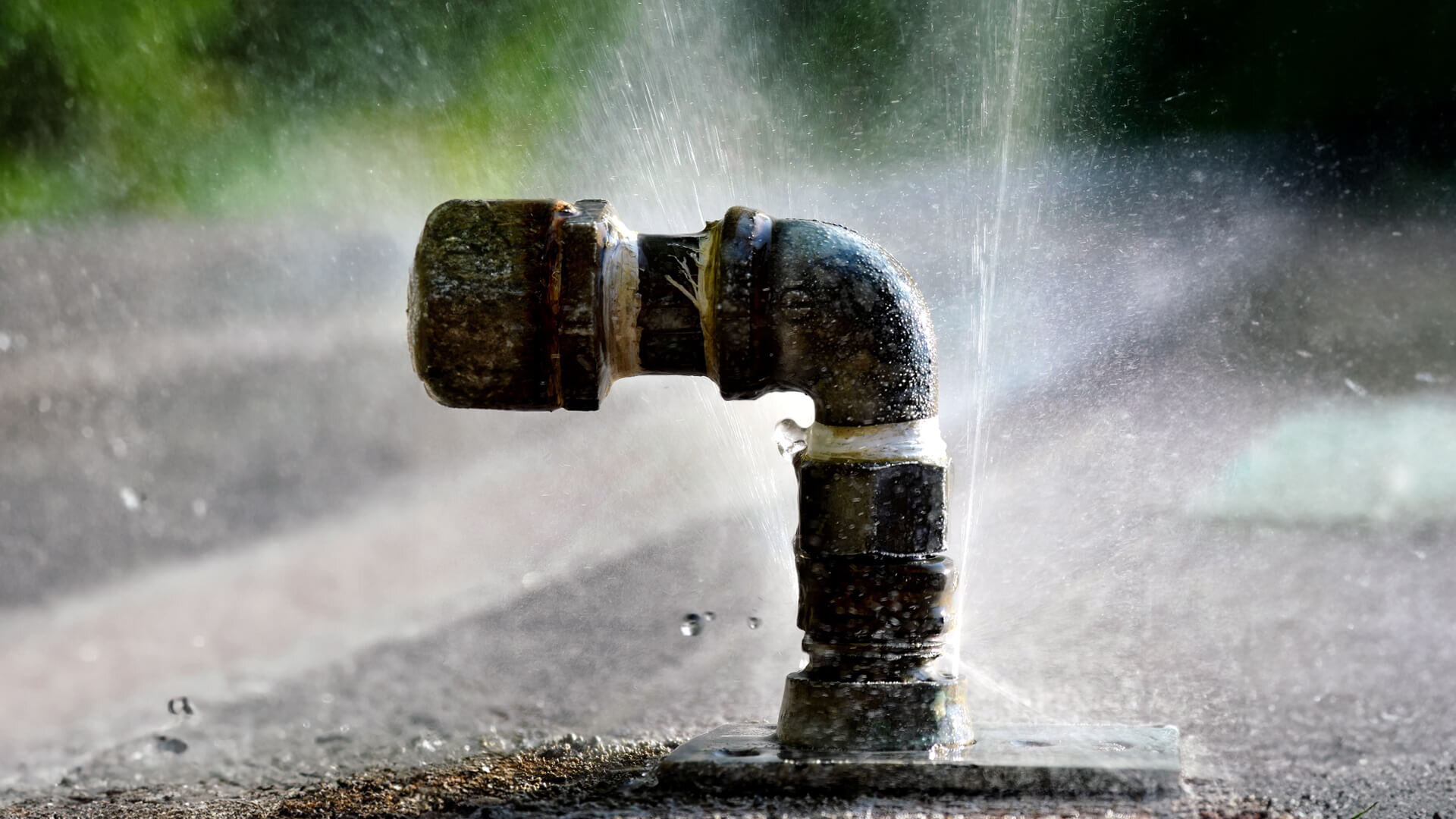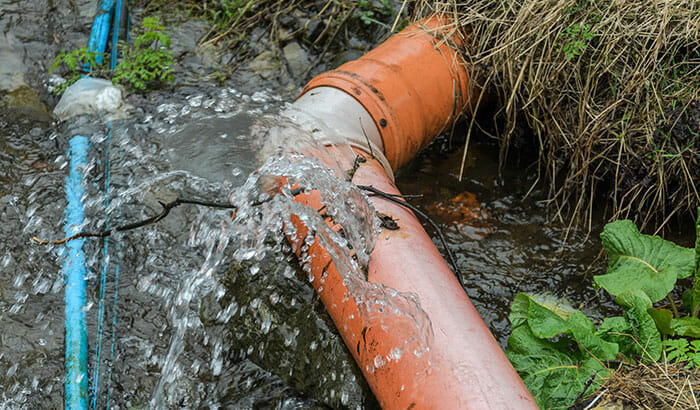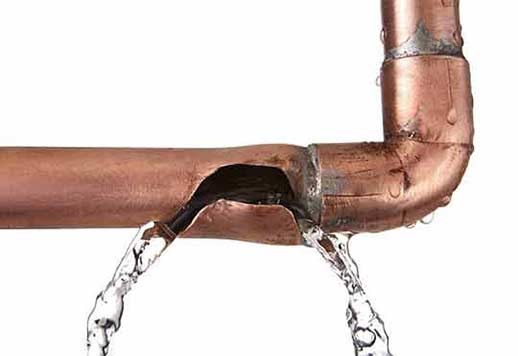Burst Pipe Insurance Claims: What You Need to Know for Water Damage Coverage
Protecting Against Ruptured Water Lines: Crucial Tips to Shield Your Plumbing
Avoiding ruptured pipes is a vital issue for home owners, particularly during cooler months when the danger of freezing is enhanced. Implementing tactical steps such as appropriate insulation, routine evaluations, and keeping regular indoor temperature levels can considerably decrease the likelihood of pipeline failing.
Understand Pipe Vulnerabilities
Understanding pipeline susceptabilities is vital for reliable plumbing maintenance and protecting against expensive damage. Several elements add to the sensitivity of pipelines to ruptureds, including product composition, age, and environmental conditions. Older pipelines, specifically those made from galvanized steel or polybutylene, often weaken in time, bring about enhanced danger of tears and leakages.
Temperature fluctuations can likewise significantly impact pipe stability. In colder climates, water entraped in pipes can ice up, exerting and broadening pressure on the pipeline wall surfaces, which may ultimately cause a ruptured. Furthermore, high water pressure can strain pipes, specifically at bends and joints, increasing the possibility of failing.

Insulate Pipes Properly
Appropriate insulation of pipelines is essential for protecting against freezing and subsequent bursts throughout cool weather (burst pipe). Protecting your plumbing system effectively safeguards against temperature level goes down that can result in pricey damage. Begin by identifying susceptible locations where pipelines are revealed to exterior temperatures, such as basements, attic rooms, and exterior wall surfaces
Usage foam pipeline insulation sleeves or wrap insulation tape around these locations to supply a protective obstacle. Make certain that all sections of the pipes, specifically those with limited heat exposure, obtain appropriate insulation. Pay special interest to joints and installations, as these are more susceptible to cold.
When shielding, it's important to choose products that meet regional structure codes and are suitable for the specific setting. For example, fiberglass insulation is frequently recommended for its thermal resistance residential properties - burst pipe. Additionally, consider using warmth wires or tape in extreme problems, which can be plugged in to offer supplemental warm
Regularly inspect shielded pipelines for any type of indicators of wear or damage, as compromised insulation can reduce its efficiency. By taking these aggressive actions, you dramatically reduce the risk of pipeline ruptureds, making sure a reliable pipes system throughout the winter season.
Maintain Consistent Temperature Level
A steady interior temperature is crucial for stopping ruptured pipelines during the cold months. When temperature levels decrease, water within pipelines can freeze, increasing and producing stress that might inevitably cause the pipelines to ruptured. To reduce this threat, home owners should maintain a regular temperature throughout their home, preferably no lower than 55 ° F(13 ° C)Using a programmable thermostat can aid take care of indoor temperatures properly, making sure that spaces with plumbing continue to be warm even when your home is empty. Pay unique attention to areas that are this content much more vulnerable internet to cool, such as garages, cellars, and attic rooms. Keeping closet doors open under sinks can additionally permit warmer air from the home to circulate around plumbing.
This small flow of water can protect against freezing by relieving pressure within the pipelines. By executing these strategies, homeowners can considerably lower the danger of pipeline ruptureds and protect their pipes systems versus the extreme winter season components.
Routinely Evaluate Pipes
Normal assessments of plumbing systems are crucial for stopping burst pipelines and keeping general home integrity. Regular checks enable homeowners to determine possible issues before they escalate right into pricey repairs or major water damage. Throughout these assessments, it is necessary to analyze noticeable pipes for indicators of rust, leaks, or use. Pay unique attention to locations prone to freezing, such as basements, attics, and outside wall surfaces.
Furthermore, examining joints and connections is vital, as these points are commonly prone to leakages. Homeowners ought to also evaluate water pressure levels, as extreme pressure can stress the pipes system and raise the danger of pipeline ruptureds.
Think about organizing specialist pipes inspections a minimum of yearly, especially before winter months, to guarantee your system is gotten ready for colder temperatures. Routine inspections not only help in recognizing instant concerns yet additionally foster long-lasting maintenance approaches that can improve the lifespan of your plumbing system. By being aggressive in your strategy, you can protect your home against the costly and turbulent repercussions of ruptured pipelines. Focusing on plumbing evaluations is an investment in your home's health and safety.
Know Emergency Treatments
Comprehending emergency procedures is crucial for every property owner, particularly after performing routine plumbing evaluations. Being prepared for a plumbing emergency situation can substantially reduce damages and conserve costs.
Following, maintain vital devices helpful. A plumbing emergency kit should include a wrench, plunger, and towels, along with a flashlight and a pail for small leaks. Additionally, take into consideration having the call details for a trusted plumbing technician conveniently available, ought to the situation intensify beyond your control.
If you spot a leak or burst pipeline, instantly switch off the supply of water and alert your plumber. Moreover, record the damages with photographs for insurance purposes. burst pipe. Understand the indications of potential plumbing problems, such as uncommon water stress changes or damp places on walls
Ultimately, proactive understanding and speedy activity are critical in handling plumbing emergency situations, guaranteeing your home remains protected and reducing prospective damage.

Final Thought
In final thought, protecting against ruptured pipes demands a complex approach that includes understanding pipe susceptabilities, proper insulation, maintaining constant indoor temperature levels, regular examinations, and understanding of emergency situation procedures. By implementing these necessary techniques, the threat of plumbing failures can be dramatically lowered, thus ensuring the longevity and effectiveness of the plumbing system. Positive steps not just safeguard against prospective damage however likewise add to total water conservation and the defense of residential or commercial property.
In cooler environments, water trapped in pipelines can freeze, exerting and expanding stress on the pipe walls, which might ultimately lead to a burst. When visit the site temperature levels decline, water within pipelines can ice up, creating and expanding pressure that may inevitably trigger the pipes to burst. By executing these techniques, house owners can significantly reduce the danger of pipe bursts and guard their pipes systems against the harsh winter season components.
